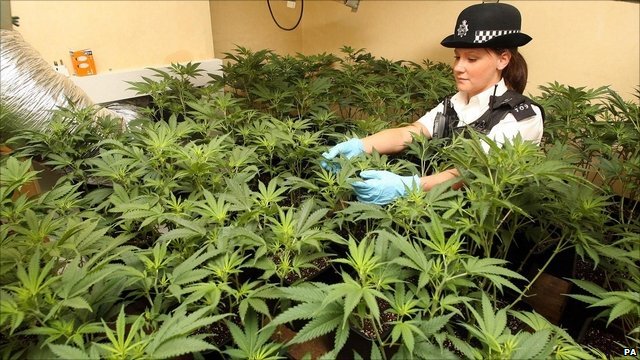As far as people who support marijuana legalisation go, IÔÇÖm a pretty unusual case. I donÔÇÖt drink, I donÔÇÖt smoke, and I am not, in the words of some, ÔÇ£420 friendlyÔÇØ. Equally, IÔÇÖm fairly socially conservative, and while IÔÇÖd like to describe myself as liberal, I still approach ÔÇÿnewÔÇÖ things with the same trepidation as everybody else.
Even so, I think that drugs laws are completely ridiculous, grounded in the same reality as most other ÔÇ£politically sensitiveÔÇØ issues. For too long, the political class have used tightening drug laws as something they can do in an effort to prove that they are ÔÇ£tough on crime.ÔÇØ But there is mounting evidence that, in some cases, this does much more harm than good.
Such is the hysteria surrounding marijuana usage that the drug has been repeatedly reclassified as a class B and class C drug in the past decade, placing it in the same category as ketamine (a horse tranquilizer) and speed. Could it be that there was suddenly a surge in stoned muggers? People blazing and driving? Or, more likely, is it another example of parliament playing politics with health?
If politicians really desired to protect the health of the public, then they would make alcohol and tobacco illegal. Both are addictive, and both highly detrimental to the human body. A more potent threat to wider society is obesity, yet the political rhetoric towards fatty food and soft drinks is largely muted. Dope is not going to destroy the NHS any more than tobacco already has, and with diabetes on the rise, it seems as though the political class is confronting the wrong enemy.
LetÔÇÖs break down a few common misconceptions. For starters, I find the idea of a gateway drug ridiculous; at what point does a coffee drinker start sniffing glue? Marijuana is most often a gateway drug because dealers have no duty of care towards their clients. Though they operate outside of the law, theyÔÇÖre businesspeople like any other, and they have to make a profit – and recreational marijuana users are far less profitable than heroin addicts.
Indeed, IÔÇÖd hazard that marijuana is only really a gateway drug because users are forced to buy their product from people who are living passages to the underworld. You could certainly argue that if people didnÔÇÖt smoke weed in the first place that they wouldnÔÇÖt end up associating with these sorts of people – but what if we legalised marijuana and cut them out of the equation entirely? Much of the profit from the drugs trade goes towards funding other crime, and it isnÔÇÖt enough to just arrest the few suppliers who get caught.
Taking this cash flow out of the hands of criminals and having supply controlled by a regulated body would have many more benefits than simply enabling potheads. For starters, thereÔÇÖs the taxation angle; IÔÇÖd rather that doctors and the police would benefit from the sale of marijuana than drug dealers, and deriving public funds in that way would weigh on my conscience no more than tax on alcohol.
The hypocritical nature of the marijuana debate – particularly where alcohol is concerned – debases most real opposition to it. I used to work on a local newspaper in a resort town, and countless crime stories we reported on would revolve around drunken violence, where those without criminal records would experience temporary moments of rage. The negative health benefits of passive smoking have stigmatised tobacco to the point where it has been all but outlawed in public places. Yet no matter how well you can handle your alcohol, you can never guarantee that somebody nearby will exceed their limits and inflict violence on another.
I have never – not in my life – seen anybody inflict violence on another as a result of smoking weed. I have seen plenty of people become a danger to themselves and others as a result of drinking excessively, however. While the long term effects of alcohol and marijuana (especially where younger users are concerned) are bleak, short term lapses in judgement typically have much more violent consequences when alcohol is mixed into the equation.
But the most ridiculous aspect of any discussion on the subject was how frequently it is used as a scapegoat. The number of marijuana users in the UK is astoundingly low, and the fact that there is a debate in the first place shows how little concern our political class have in dealing with real problems. Moving marijuana around on an imaginary list wonÔÇÖt do anything to perturb those who deal with illegal drugs or legal highs, as they already operate outside of civil society. The British government should stop handing custodial sentences to people smoking marijuana – itÔÇÖs a plant, for godÔÇÖs sake – and rethink drugs policies with more than just elections in mind, because youÔÇÖd have to be high to think the current state of the law made any real sense.
Michael O’Connell Davidson








Add Comment